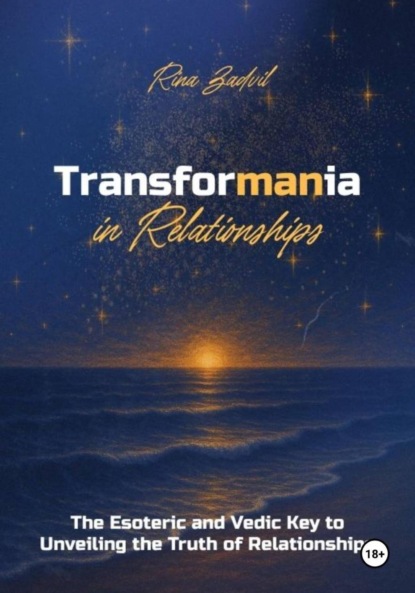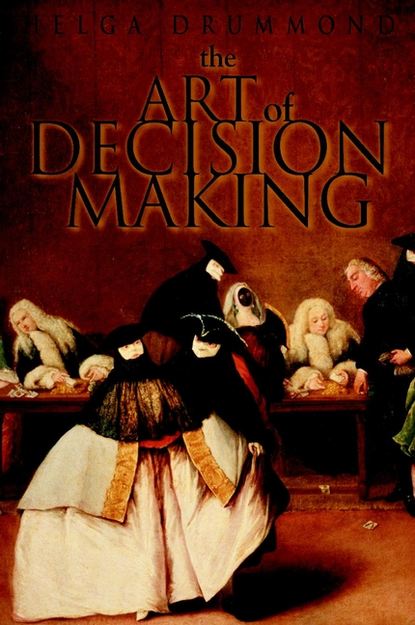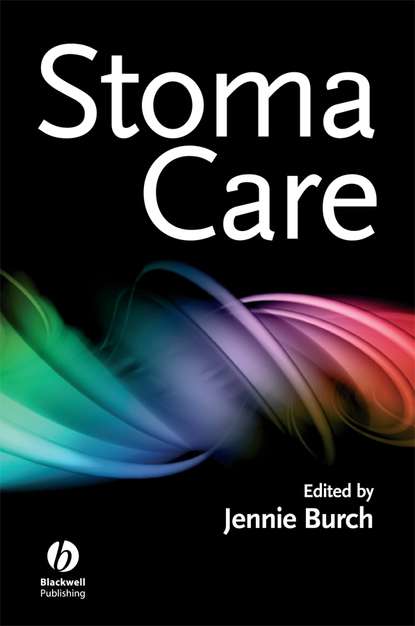Transformania in Relationships

- -
- 100%
- +
Example 1: A man with Venus in Taurus tries to invite on a date a woman with Venus in Libra. The Libra-Venus woman needs everything to be beautiful, refined, cultured, and respectful. The Taurus-Venus man, although he has excellent taste in women (after all, he chose to invite a beautiful lady), makes a serious mistake in how he invites her. Not only does he ask her out “right now,” for a rather late meeting (around 10 p.m.), but he even specifies which slippers he intends to wear – slippers that, in her view, look hopelessly unattractive and utterly unfit for a date.
When she points out that it is inappropriate to set up a meeting so unexpectedly – and at 10:30 p.m., when she’s already getting ready for bed – he replies that “it’s not that late” and that “there’s a first time for everything.” Naturally, the date never happened. Perhaps another woman with Venus in a different sign would have agreed to a sudden late-night meeting – but certainly not Mademoiselle Libra.
Example 2: Another interaction between a Venus-in-Taurus man and a Venus-in-Libra woman: He takes her for a walk in nature (probably one of the few things they have in common). The Taurus-Venus man, like a child, marvels at every mushroom or flower they encounter – and there are many – pausing at each one, admiring it as if he had never seen such things before. He examines them like museum pieces of art and then exclaims with satisfaction, “Cyclamens…” – with deep soulful peace (where I live, these flowers are quite common). By the second time, the Venus-in-Libra lady has to restrain herself from rolling her eyes.
Then they sit on a bench to enjoy the view. Nearby on the ground lies some trash and disposable dishes. Without hesitation and without gloves, the Taurus-Venus man decides that this is his life’s mission and begins to clean it up, which utterly disgusts the Venus-in-Libra woman. Then he expresses extreme views, justifying population reduction and blaming large families for polluting the planet.
The Venus-in-Libra woman shudders at these words – she believes in karma and knows that no soul is born without purpose, and the mere thought of a person deciding who should live and who should not terrifies her. Of course, it’s important to care for the environment, but it’s impossible to control everything everywhere (and who says the litter was left by a large family?).
Naturally, not every Venus-in-Taurus man behaves this way, and certainly there were other factors in his chart that enhanced such mannerisms.
Still, the more planets are 6–8 houses apart in synastry between two people, the more awkward and absurd situations of this kind tend to occur.
The D9 Chart
In Indian astrology, there is the main natal chart (D1) and numerous divisional charts.
One of the most significant among them is the Navamsha (D9) chart, which represents the nature of marriage, the spouse, and self-realization of the chart holder.
When evaluating compatibility, it is essential to analyze both the D1 and D9 charts of both partners.
There is a common belief that if the D9 chart of Partner 1 is “similar” to the D1 chart of Partner 2 (meaning most planetary positions coincide), the couple has a strong potential for a long-term relationship, possibly leading to marriage and family life. However, this appears to apply only when there is mutual resonance (a kind of “cross-link” between the charts). If only one partner’s D9 overlaps with the other’s D1, while the second partner’s chart does not reflect this connection, the latter is likely to sense the imbalance and eventually slip away from the relationship.
Moon Compatibility
One of the most crucial indicators of compatibility is the relationship between the natal Moons of both partners.
If there is no harmony between their Moons – whether by sign or Nakshatra (constellation) – it indicates a connection lacking emotional balance and mutual sensitivity.
I would recommend Ilana Lib’s book “Nakshatras,” which offers excellent explanations of each Nakshatra and a clear matrix of relational dynamics between them. The interpretations in that work are consistently precise and aligned with real-life experiences.
Just like the Moon, the Ascendant sign also plays an important role – it is advisable to check compatibility by both sign and Nakshatra as well.
Sometimes, the Moon of Partner 1 may fall in the same sign or even the same Nakshatra as the Moon of Partner 2 – potentially indicating deep emotional understanding.
However, aspects and conjunctions with other planets can completely alter this picture.
For example, if one partner’s Moon is conjunct Mars in the same house – the Moon + Mars conjunction in anyone’s natal chart is a black flag. We will discuss this in greater detail later.
Common Problematic Configurations in Synastry Between Two PartnersPartner 1’s Moon + Partner 2’s Mars in the same sign or aspect
Drama, ugly quarrels, power struggles, emotional – and in some cases physical – wounds are just part of what to expect from such a connection. At first, there seems to be strong attraction, but the relationship quickly turns strange and unstable.
The Moon person – the more sensitive side – does not know how to cope with the aggressive attacks of the Mars person. Each outburst cuts like a knife from an unexpected direction.
Mars, being a malefic planet, seeks to control and exploit the Moon’s emotional vulnerability, violating dignity and personal boundaries at every opportunity.
There is no mutual understanding; their needs are completely different: the Moon person longs for tenderness and care, which Mars by nature cannot or does not wish to give due to his aggressive disposition.
Partner 1’s Venus 6–8 houses apart from Partner 2’s Mars
These are highly challenging relationships, full of appeasement, manipulation, and emotional dependency. This configuration can lead to abuse, toxicity, or even danger.
One partner may attempt to isolate and control the other’s life or conceal deceitful or harmful intentions (for instance, Venus in Sagittarius for Partner 1 and Mars in Cancer for Partner 2).
A few days after separation, the Venus person often feels immense relief, realizing they have escaped an “irritant” that they previously could not identify clearly due to emotional overload.
Partner 1’s Rahu/Ketu on Partner 2’s Moon (same sign)
This indicates a heavy karmic connection accompanied by emotional turbulence. Sometimes it is seen as a sign of possible marriage, though not always.
If they marry, they will find it hard to part; if not, the separation may be painful and lingering, even when it’s clearly for the best.
Rahu creates an illusory smoke screen of obsessive energy, confusing the Moon and making the Moon person believe they are in love.
Partner 1’s Rahu/Ketu on Partner 2’s Venus (same sign)
Venus–Rahu: Rahu here clouds Venus’s clarity. There may be an illusion of love, distorting one partner’s perception of reality. They are unable to see things as they truly are, even when presented with facts. One partner may be materialistic, seeing the other as a “doll.”
Such relationships rarely lead to anything real (apart from physical attraction) and often end in scandal and betrayal.
If the Rahu person is a man, he is unlikely to remain faithful to the Venus person – he will constantly seek “more women,” especially if insecure or motivated by material gain.
Venus–Ketu: This may indicate a connection from past lives, but it often brings emotional difficulties.
Conflicts arise due to opposing desires – one seeks romance and pleasure, the other distance and detachment.
The outcome is uncertain; most often it suggests a short-lived relationship. Additional factors in both charts must be analyzed for a full picture.
Partner 1’s Rahu/Ketu on Partner 2’s 1–7 House Axis
A karmic bond often found in married couples.
There is an unconscious attraction to partners who may seem unusual or eccentric.
Balance between individuality and partnership is crucial to avoid issues with self-identity and relationship definition. If both partners decide they are together, they must remain faithful and committed, not justify unfaithfulness with the idea of an “open relationship.”
Such a bond is worth pursuing only if there is true love and proven trust. Disillusionment may follow initial idealization, leading to instability, misunderstandings, and misplaced criticism. The only way to improve such a connection is through mutual spiritual awareness and conscious work on the relationship, along with individual spiritual practice.
Partner 1’s Pluto + Partner 2’s Moon (same sign or aspect)
A particularly heavy – sometimes deeply karmic – connection that may leave one partner psychologically traumatized. The attachment is intense yet destructive, and separation is painfully difficult despite the problems.
There is emotional blindness to manipulation, domination, and vulnerability.
Explosive arguments arise out of nowhere.
Partner 1’s Pluto + Partner 2’s Venus (same sign or aspect)
This pair is filled with passion and intensity, but such relationships can end in heartbreak, exposure, and collapse.
Separation may feel like a black hole in the heart. Such couples often reunite again and again after breakups – they struggle to cut the energetic ties.
However, one must learn to let go if the relationship is destructive.
One partner may be clearly dominant. It is advisable to remain in such a union only if both maintain balance, maturity, and seriousness in the relationship.
Partner 1’s Pluto + Partner 2’s Mars (same sign or aspect)
This combination often breeds ego games, aggression, and even violence – verbal or physical. A dangerous configuration where at least one partner dominates excessively.
If either has behavioral issues or tendencies toward aggression, the situation is highly serious, and such relationships are strongly discouraged from the start.
Partner 1’s Saturn + Partner 2’s Mars (same sign or aspect)
Mars wants to act in a certain way, but Saturn restricts him.
The problem arises when Saturn’s restraint comes from differences in values, which Mars refuses to accept or understand. For the Saturn person, it’s a waste of time to enter a relationship lacking axiological (value-based) and spiritual compatibility.
Partner 1’s Moon/Venus + Partner 2’s Mercury (same sign)
This can bring lively communication and even pleasure in the relationship (especially Venus–Mercury), but it rarely indicates long-term union.
Such romances often end within a few months – typically under half a year.
The Time When You MetRegardless of both individuals’ natal charts, planets in the sky never stop moving – they continue to transit from house to house and trigger situations. The transit chart shows directly whether the time is favorable for romantic encounters.
When the timing is unfavorable, even if you meet someone, they won’t be right for you.
A person may appear who, if you overlook their major flaws early on, will cost you precious time and emotional energy. It’s crucial to be aware of what’s happening in the sky while keeping your feet firmly on the ground.
Sometimes people believe that when Jupiter transits the 7th house, the woman may meet her future husband or get married – but that’s not always the case. Possible reasons include: other planets are not positioned in houses conducive to marriage; the current planetary period (Dasha) does not support relationship formation; or Jupiter’s Ashtakavarga strength relative to that transit is weak.
For example, if Jupiter transits through Taurus, which is the woman’s 7th house, but in her Jupiter Ashtakavarga chart Taurus scores below 4, the chances of meeting her future husband during that transit are extremely low – even if other planets seem favorable.
The number indicated in each sign in the Ashtakavarga chart represents how many “liters of fuel” the planet has in that sign/house: 1 or close to 1 – “the tank is almost empty,” 4 – neutral, 8 – “the tank is full” – the planet has enough energy to manifest the transit’s promise.
Sometimes, a planet may transit a sign with a low score in the Ashtakavarga, yet the event still manifests – this happens due to planetary aspects from other signs that hold higher scores and reinforce the outcome.
Patterns in Your Horoscope

What Truly Attracts Certain Men to You – and the Gaslighting of “Reality Manifestation” Coaches
In our time, it has become extremely trendy to “manifest reality” – to decide what you want and then “attract” it through various techniques (writing something down, thinking about it, or, conversely, not thinking about it, etc.).
To be honest, these methods do not always work, especially when no actual energetic or magical application is involved. This is not necessarily because such techniques are bad – on the contrary, some are quite positive.
There are indeed cases when a few of them do work, thanks to: supportive planetary transits, our correct attitude or behavior in a given situation, or simply because certain events are destined to occur.
The real problem with this “manifestation” industry begins where all kinds of so-called “coaches” or “mentors” start handing out advice like: “Listen to this sound, and he’ll call you,” or shifting all responsibility for a woman’s life onto her with lines such as: “If you’re not in a relationship, it means you don’t want it enough,” “Something in you attracts the wrong men,” or other primitive formulas like: “You just don’t know how to build relationships with men, that’s why you’ve ended up doing everything yourself – now you’re so independent.”
All these statements are directed at women without any genuine understanding of who they are, and without any professional psychological evaluation. Such “mentors” never pause to consider that there are forces beyond what a person consciously wants or does. It is not simply a matter of wanting or not wanting – that notion is deeply misleading.
That very “something” which attracts the wrong men is not necessarily your fault. Yes, perhaps there is some inner work to do; perhaps you simply need to learn to choose better and stop compromising – to stop wasting your time (and that is precisely why I am writing these words now). But perhaps it’s also time to understand, through your natal chart, what kind of men you are naturally inclined to attract – until the right one finally appears.
In a woman’s horoscope, Mars represents the partner or lover, while Jupiter represents the husband. By analyzing the positions of Mars and Jupiter, along with: the 5th house (which, among other things, relates to romance and emotional connections), the 8th house (the house of intimacy), and the 7th house (the house of marriage and partnership), you can begin to understand why you have encountered men who weren’t truly right for you – and what will continue to happen if you keep holding on to men of that same type.

Mars + Rahu Conjunction – Angaraka Yoga
Rahu amplifies the demonic nature of Mars.
This is an extremely tense and volatile combination, bringing with it great power, impulsiveness, and intense passion, but also a strong tendency toward outbursts, obsessiveness (intrusive, uncontrollable thoughts), and violent quarrels when things go wrong.
It may lead to relationship instability or infidelity on the part of men. (Infidelity here does not necessarily mean a physical act with another woman; it refers to any form of betrayal or harmful deceit.)
The influence is even stronger when this yoga aspects the fifth house.
A woman with this configuration may attract unusual, unpredictable, or violent men – manipulative, emotionally volatile, and with a hidden aggressive side that eventually surfaces once they feel comfortable enough to reveal it.
In extreme cases, she may encounter men without moral values, with criminal tendencies, or those who make promises and create illusions of effort or devotion – only for it to later become clear that it was never sincere.
In some cases, such men refuse to let go, engaging in stalking or obsessive monitoring long after the connection has ended.
If you have this conjunction in your natal chart and begin to feel nauseous after arguments, or if unpleasant events happen soon after spending time with such a man, or you feel physically unwell – this is a clear sign to run.
It is said that when Mars or Jupiter are in conjunction with Rahu, one possible remedy for the chart holder is marriage to someone from a different culture, which can neutralize part of the negative influence – provided, of course, that other factors in the chart also indicate such a possibility.
Mars + Sun Conjunction
This placement shows a tendency to attract dark, power-based connections, and may be associated with sadism and masochism, dominance games, and a love of control.
Girls with this conjunction in their natal chart may have been aggressive or confrontational in childhood, picking fights or being irritated by trivial things. They may display anger toward other girls and show signs of bullying behavior. There is a risk of abuse – both giving and receiving it. For example, such a girl might laugh when someone falls or gets hurt, yet if she herself is scolded or corrected, she will withdraw and cry.
The type of men this placement attracts are those who enjoy playing with others’ emotions, wasting women’s time, and using them. Such a man might convince his partner that they are “not ready yet” for marriage, even after several years together – and she will agree, out of fear of being alone. For her, being alone feels like failure. This type of man will make her work hard in the relationship, compromise excessively, or forgive the unforgivable.
Women with this placement who are in relationships with such men may experience illness or energy depletion.
Their feminine essence does not blossom, and their values in love become distorted.
If any additional planet joins this Mars–Sun conjunction, the effects become more severe.
Mars + Moon Conjunction – Chandra Mangala Dosha
This conjunction is considered a dosha – a serious flaw in the natal chart. The Moon represents emotions and the psyche, while Mars represents fire and war.
Together, they create an inner storm, hypersensitivity, or a lack of empathy, extremes, drama, and emotional volatility.
It may lead to emotional instability in relationships or attraction to partners who behave in such ways – unstable, moody, impulsive, and at times deriving pleasure from hurting others.
Mars in Cancer
Cancer is the sign of Mars’s debilitation (governed by the Moon), which makes Mars very weak here.
There may be difficulty expressing desires clearly, a tendency toward hypersensitivity and suppressed irritation, which sometimes bursts out unexpectedly.
Emotional imbalance can “castrate” the men involved with such a woman – or, from the start, she may be prone to attracting weak or dependent men.
Men drawn to her may be overly emotional, dramatic, sentimental, or exhausting to deal with.
A woman with Mars in Cancer may also have a tendency toward envy of other women and may unintentionally destroy female friendships.
Retrograde Mars
A person (man or woman) with retrograde Mars often carries deep internalized anger, which leads to disappointment, lack of motivation, laziness, and a habit of shifting responsibility to others.
There may be dependence, or a tendency to seek help instead of taking independent action.
At the same time, there can be strong jealousy toward those who succeed.
Difficulty in self-expression can lead to delayed achievements or even harm to others. There may be frustration related to sexuality, insecurity, or strange and aggressive behavior in romantic relationships.
Such a person may miss opportunities due to anger, fear, stagnation, or apathy. They prefer to believe that success will “fall from the sky” rather than work for it.
Laziness can also manifest in learning – they avoid acquiring skills independently, expect help, and once they receive it, they may “stab in the back” and twist the story to appear as a victim, seeking to achieve a false “victory” through deception and manipulation, when they clearly don’t deserve it.
If Saturn in the chart also does not indicate discipline, the person may suffer from chronic lateness, act as though oblivious to their own faults, and constantly believe that “the world owes them something.” They often shift blame to others.
However, if someone with retrograde Mars has even a minimal level of self-awareness, they can balance this blocked energy through deep spiritual and physical work – meditation, sports, yoga, and similar practices.
As long as they avoid falling into a negative mindset and instead choose a direct, kind, and disciplined path, they can achieve great success.
Moon and Mars at the Same Degree
In this case, the Moon and Mars don’t have to be in the same house – but if they share the same degree, they automatically cast a full aspect upon each other.
Wherever they are placed, this can signify relationship difficulties, involvement with unfit, offensive, or toxic people.
For example: if the Moon is at 10° in one house and Mars is at 10° in another, without considering minutes, this aspect exists and can indicate conflictual emotional dynamics and unhealthy attachments.
VenusKetu + Venus Conjunction
Detachment, inner emptiness, and a sense of dissatisfaction in relationships. Difficulty committing fully or truly feeling love – and, on the other hand, difficulty leaving or distancing oneself when a connection is unhealthy. Lingering resentment toward ex-partners who have left. A tendency to attract emotionally unavailable men (sometimes with violent tendencies), who avoid commitment or are capable of simply disappearing without explanation.
Sun + Venus Conjunction
When the Sun blinds Venus, it both enhances beauty and talent (especially when Venus is close to the Sun in degrees and in certain signs) yet destroys relationships.
Men may be drawn to such a woman for her looks but enter into exploitative or superficial relationships.
She must learn to choose men more wisely, allowing them to truly prove their sincerity and good intentions before entering a romantic connection.
Saturn + Venus Conjunction
At best, this placement brings delayed relationships or marriage, because Saturn tends to slow down whatever it touches. There may be emotional coldness, difficulty expressing feelings, and a sense of dryness or limitation in relationships.
It can also signify a lack of pleasure in romantic connections.
Venus in the 8th House or as the Ruler of the 8th House
The eighth house governs sexuality, crisis, secrets, and power.
Venus placed here may indicate karmic, turbulent relationships marked by jealousy, obsessive dynamics of “push and pull,” infidelity, and connections that bring both intense passion and pain.
Venus in the 6th, 8th, or 12th houses often signifies complex relationships, emotional suffering, hidden matters, or financial issues – and the partner may experience similar difficulties.
Venus in Earth Signs: Taurus, Virgo, and Capricorn
A need for security, stability, and practicality, sometimes at the expense of genuine feeling or romance.
In Virgo (Venus’s sign of fall): criticism, unrealistic expectations, materialism, and difficulty expressing emotions.
In Capricorn: excessive seriousness, rigidity, discipline, and emotional restraint.
In Taurus: possessiveness and attachment.



